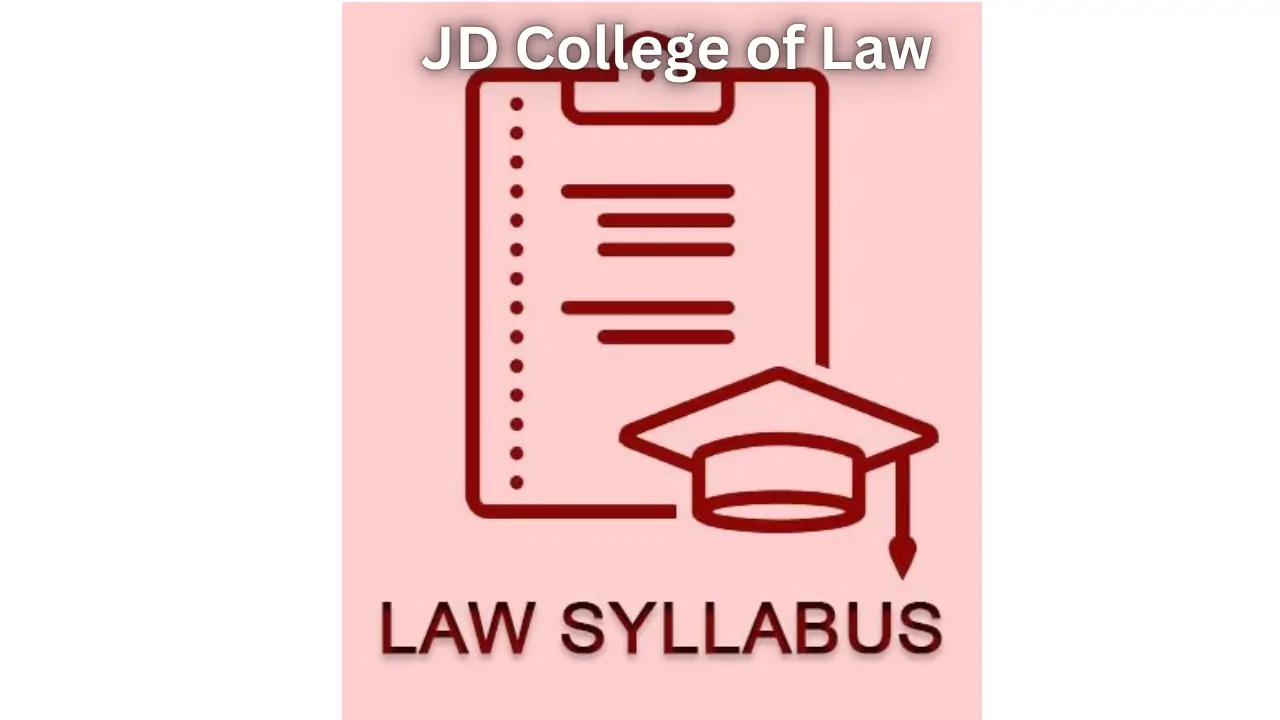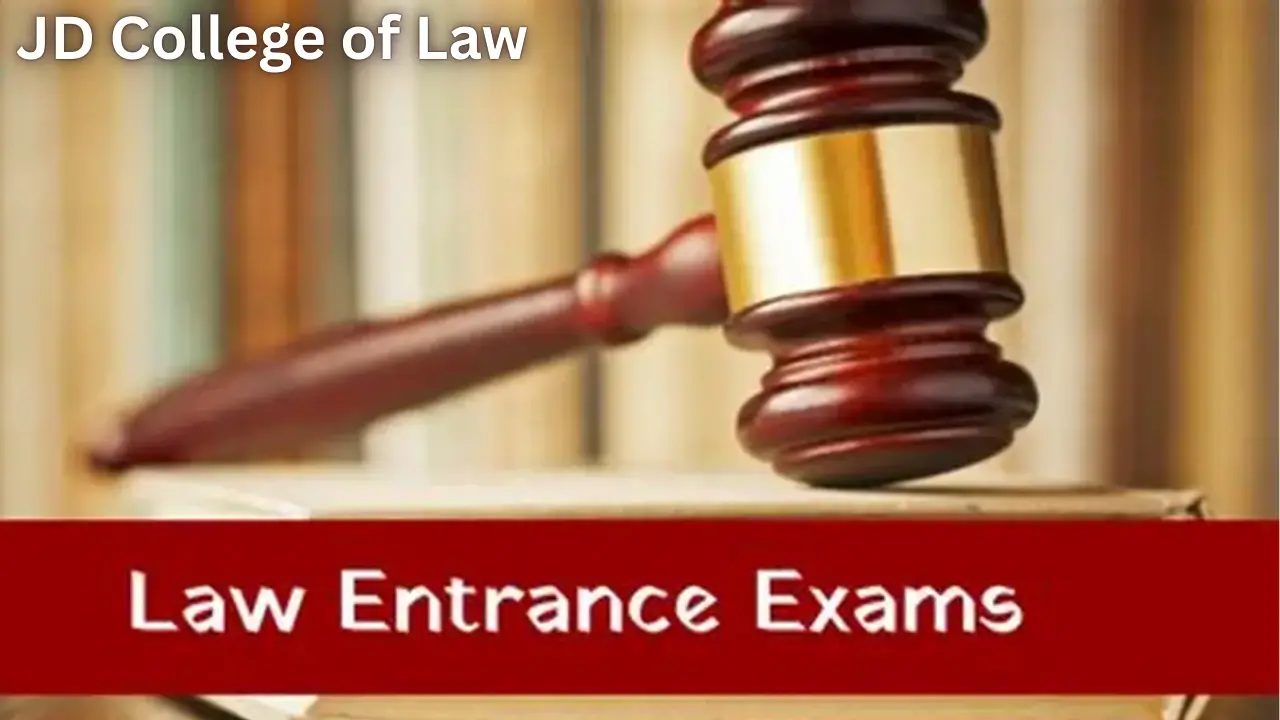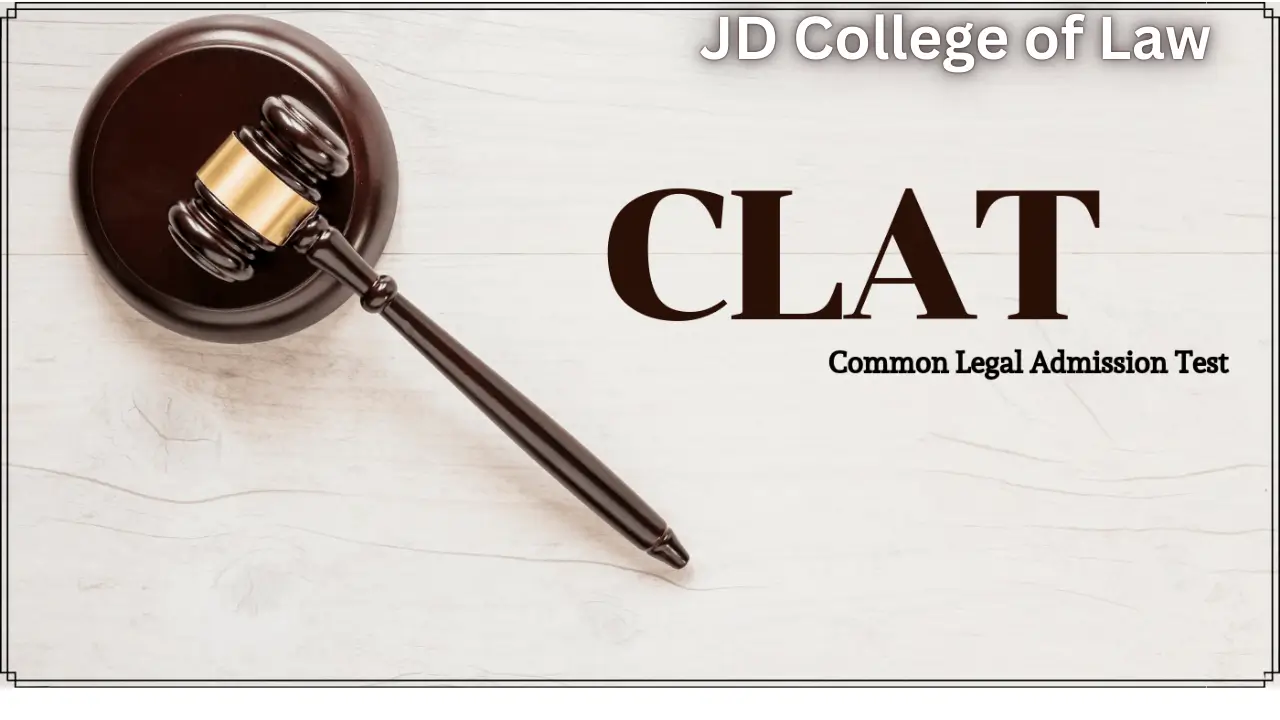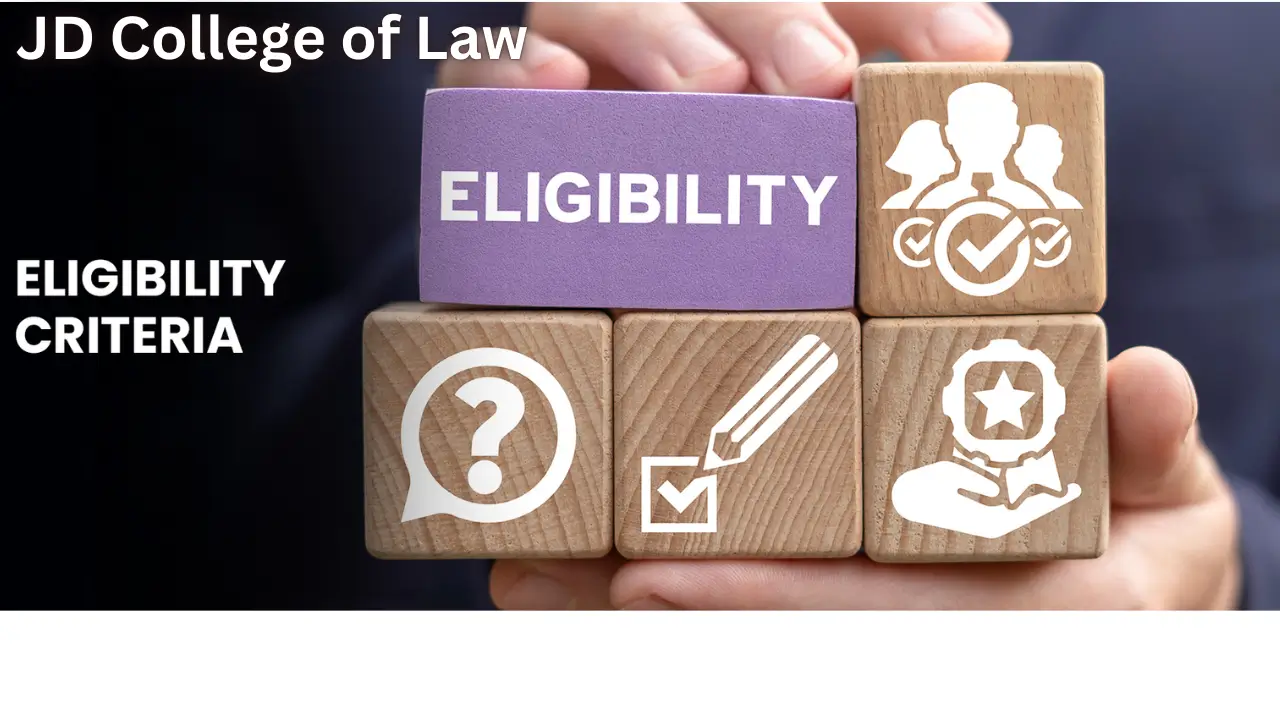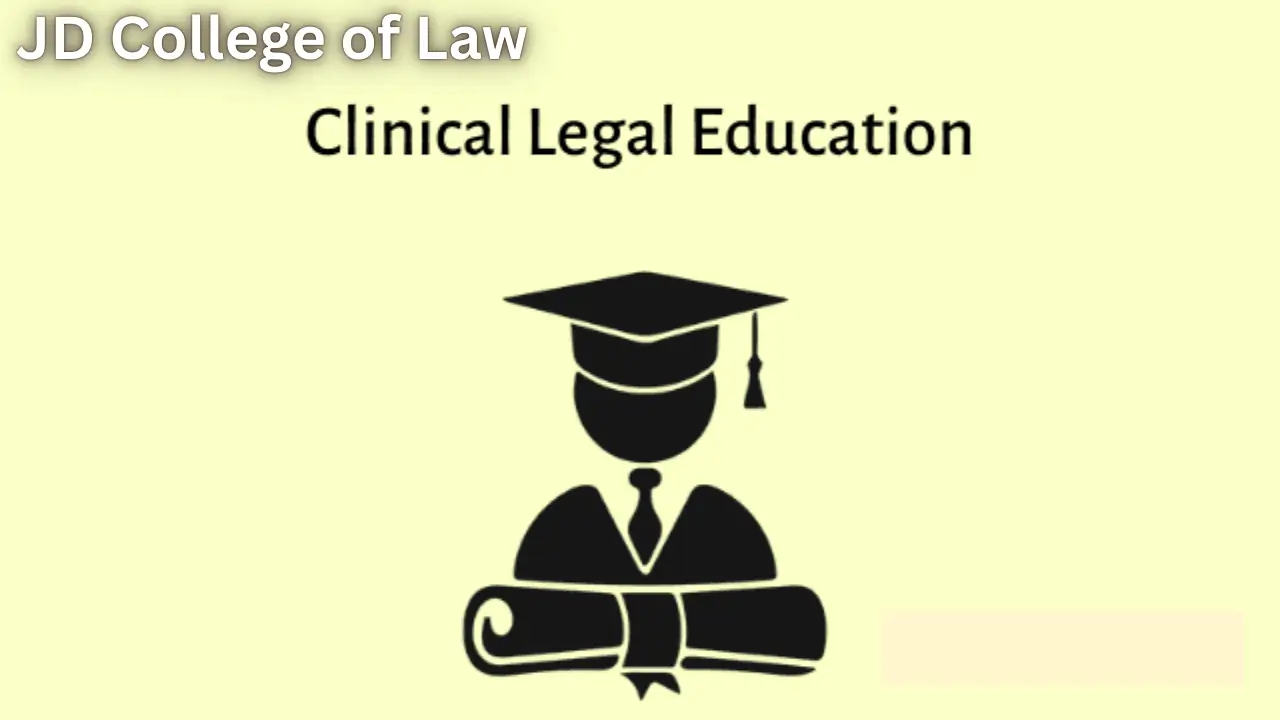JD College of Law offers both the LL.B. (Bachelor of Laws), a three-year program, and the B.A. LL.B. (Bachelor of Arts and Bachelor of Laws), a five-year integrated course. These programs are meticulously designed to blend foundational legal education with practical training, ensuring students graduate with the analytical, reasoning, and professional skills required in today’s legal environment.
Overview of the LL.B. Syllabus
The LL.B. program is structured across six semesters, emphasizing core law subjects, theoretical perspectives, and practical legal skills.
Semester-Wise LL.B. Syllabus Table
| Semester | Major Subjects |
|---|---|
| Semester 1 | Jurisprudence-I, Law of Contract, Law of Torts, Legal Methods, Public International Law |
| Semester 2 | Jurisprudence-II, Administrative Law, Constitutional Law-II, Evidence Law, Property Law |
| Semester 3 | Family Law I, Labour Law, Law of Crimes-I, Interpretation of Statutes, Information Technology Act |
| Semester 4 | Family Law II, Environmental & Wildlife Protection Laws, Company Law, Law of Crimes-II, Taxation Law |
| Semester 5 | Code of Civil Procedure, Limitation Act, Labour Law & Industrial Relations-II, Public International Law, Bharatiya Nagarik Suraksha Sanhita, 2023 |
| Semester 6 | Alternate Dispute Resolution, Law of Evidence, Criminology & Penology, Practical Training |
- Core law papers cover areas such as Constitutional Law, Crime, Contract, Property, Family, Evidence, and various procedural laws.
- Electives and practicals include subject choices like Human Rights, Intellectual Property, Cyber Law, and compulsory internships as per Bar Council of India guidelines.
Syllabus for B.A. LL.B. (Five-Year Integrated Program)
The B.A. LL.B. integrates law studies with social sciences and humanities to provide a broad-based legal education across ten semesters.
Semester-Wise B.A. LL.B. Syllabus Table
| Semester | Major Subjects |
|---|---|
| Semester 1 | Political Science, English, Legal Method, Law of Torts |
| Semester 2 | Sociology, Legal English, Contract Law, Family Law-I |
| Semester 3 | History, Economics, Constitutional Law-I, Criminal Law-I |
| Semester 4 | Political Science-II, Law of Evidence, Constitutional Law-II, Criminal Law-II |
| Semester 5 | Administrative Law, Labour Law, Jurisprudence, Environmental Law |
| Semester 6 | Public International Law, Company Law, Alternative Dispute Resolution, Human Rights Law |
| Semester 7 | Intellectual Property Rights, Banking & Insurance Law, Taxation Law, Cyber Law |
| Semester 8 | Competition Law, Civil Procedure Code, Interpretation of Statutes, Internship Training |
| Semester 9 | Land Laws, Investment & Securities Law, Drafting & Pleading, Moot Court Exercise |
| Semester 10 | Dissertation, Professional Ethics, Legal Aid & Clinical Legal Education |
- Interdisciplinary foundation includes Political Science, Sociology, History, and Economics in the first years.
- Rich law curriculum covers every branch: Civil, Criminal, Corporate, Cyber, Human Rights, and Taxation Law.
- Includes internships, moot court exercises, drafting, and legal aid clinics for holistic skill building.
Highlights of Both Programs
Key Components
- Core Law Courses: Constitutional Law, Criminal Law, Family Law, Property Law, Administrative Law, Labour Law, Jurisprudence.
- Allied Humanities (B.A. LL.B.): Political Science, Sociology, History, Economics, English.
- Electives & Specialisations: Intellectual Property, Cyber Law, International Law, Human Rights, Corporate Law, Environmental Law.
- Practical Training: Moot Court, Court Visits, Internships, Legal Research, Drafting, Pleading, Clinical Legal Education.
- Recent Additions: Emphasis on technology law, environmental law, ADR systems, and clinical exposures as per the latest regulatory mandates.
Practical & Skill-Oriented Aspects
- Internships are compulsory across both courses, giving hands-on exposure in legal firms, courts, NGOs, and government bodies.
- Moot Court Practice forms a regular component for sharpening argument and research skills.
- Legal Aid and Clinical Education bring social and professional responsibility to the fore during the final semesters.
Latest Updates (2025)
- Integration of New Laws: Latest amendments, including laws like the Bharatiya Nagarik Suraksha Sanhita, 2023 and updates in labour and technology laws, have been incorporated into the curriculum.
- More Emphasis on Technology Laws: Cyber Law, Information Technology Act, and related electives introduced as compulsory or elective modules.
- Expanded Practical Training: Greater weightage on clinical education, drafting and pleading, and participation in legal aid services.
- Enhanced Interdisciplinary Approach: B.A. LL.B. program continually refreshes humanities content, reflecting current socio-legal issues and economic policies.
Frequently Taught Subjects: Key Topics
- Constitutional Law & Administrative Law: Indian Constitution, Fundamental Rights, Parliament, Judiciary, Centre-State Relations, Administrative Discretion.
- Criminal Law: IPC, CrPC, Special Laws, Juvenile Justice, Probation.
- Family Law: Hindu and Muslim Law, Marriage, Divorce, Inheritance.
- Corporate and Commercial Laws: Company Law, Banking Law, Insurance, Taxation, Competition & Investment Laws.
- Human Rights and International Law: UN Systems, Conventions, Indian Human Rights Commissions, Refugee Laws.
Elective and Optional Subjects
- Advanced Taxation Law
- Banking and Negotiable Instruments
- Law of Insurance
- Women and Child Law
- Medical Laws
- Conflict of Laws
Table: LL.B. vs B.A. LL.B. Syllabus Comparison
| Aspect | LL.B. (3 Years) | B.A. LL.B. (5 Years) |
|---|---|---|
| Duration | 3 Years (6 Semesters) | 5 Years (10 Semesters) |
| Eligibility | Graduate in any discipline | 10+2 pass |
| Course Structure | Pure Law Subjects, Some Practical Training | Law + Humanities + Social Sciences + Practical Modules |
| Major Law Papers | Contract Law, Torts, Criminal Law, Family Law, Constitutional Law | Same as LL.B., with additions from arts and social sciences |
| Allied Subjects | None (Focused on Law) | Political Science, Sociology, History, Economics, English |
| Practical Component | Internship, Moot Courts, Court Visits | Same, spread over longer duration |
| Entry Point | After graduation | After 12th standard |
| Career Pathways | Advocate, Legal Advisor, Judge, Legal Consultant, Corporate Counsel | Same, plus Civil Services, Research, Academics |
Conclusion
Both LL.B. and B.A. LL.B. at JD College of Law offer robust legal education, with the B.A. LL.B. providing broader exposure to humanities and social sciences, while the LL.B. focuses on core law subjects for graduates. The syllabi are regularly updated to reflect changes in law, technological advancements, and evolving professional demands.
Practical training, legal research, and interdisciplinary learning are pillars of each course, ensuring graduates are well-prepared for diverse legal careers.

